Paediatric Eye
Examination
Regular paediatric eye exams play a crucial role in maintaining a child’s overall health. Similar to routine check-ups with a pediatrician or family doctor, these exams help ensure children maintain good vision and overall well-being.
Why Are Eye Exams For Children Important?
A young child that is experiencing vision problems may not be able to tell adults what they are going through. During the growing up years, it is important that we do not miss out these concerns as it will affect the child's development and well-being.
Paediatric eye exams help us to identify common vision problems that require correction like myopia, hyperopia and astigmatism. For children with rapidly progressing myopia, regular eye exams as part of a myopia management plan to monitor and slow its progression.
Eye exams for children are also specifically designed to detect common such as strabismus (squint) and amblyopia (lazy eye), as well as rare conditions like childhood cataracts or glaucoma. By detecting such conditions early in life, we can minimise any long-term effects on a child’s eyesight by referring them for the appropriate treatment.
Understanding The Different Eye Tests
Visual Acuity & Refraction

We will assess the clarity of your child's vision at both far and near distances. This will give us a broad view of how well your child can see. For children who are unable to express themselves verbally or identify letters and numbers, we will assess using shapes and symbols.
We will then determine if your child is either shortsighted or longsighted, as well as find out if any astigmatism is present through a combination of retinoscopy, automated and subjective techniques. We will also be able to uncover any potential cases of amblyopia (lazy eye).
Colour Vision Assessment

We will assess your child's colour vision to identify any potential colour deficiencies.
Ocular Motility & Alignment Assessment

We will evaluate your child's eye movements for any weakness, or other abnormalities in the extraocular muscles which results in uncontrolled eye movements such as squints (heterotropia). We will also check for any hidden misalignment of the eyes (heterophoria)
Binocular Vision Assessment

We will assess the child's binocular vision through a series of tests, which will determine how well the eyes can coordinate and work together. Some of the key aspects that we will evaluate include the ocular dominance, depth perception (stereopsis / 3D vision), convergence and accomodation.
Anterior Eye Health Assessment

We will assess your child's anterior eye health to check for signs of abnormal pupils, congenital cataracts, eyelashes growing inwards (trichiasis), eyelids folding inwards (entropion), droopy eyelids (ptosis) using an advanced microscope. We will also assess the tear quality for any potential dry eye issues.

FAQs About Paediatric Eye Exams
When should I bring my child for an eye exam?
It is recommended to arrange for their first comprehensive eye exam when your child is between the ages of 3-5 years old, and subsequently at least once a year or a schedule that your eye care professional recommends.
If they are displaying of these early tell-tale signs, you should bring them in for an eye exam as soon as possible:
- holding their reading material up close
- excessive blinking
- tilting their head to one side while viewing
- struggling to see the whiteboard in class
- sitting close to the TV
- squinting their eyes
- unable to see the number of oncoming bus
- frequent rubbing of their eyes
- general fatigue
How long will the eye exam take?
It will typically range from 40 - 60 minutes, however it may take longer depending on the child's needs.
Is a paediatric eye exam the same as the vision screening in schools?
Vision screenings done in school every year are basic and only checks to see if a child are able to read letters on a chart at a distance. A paediatric eye exam is a comprehensive session which assesses not only your child's vision but also the other functional aspects of the visual system such as depth perception, eye movement and binocular vision. We can detect common issues like myopia and amblyopia and address them early on.


